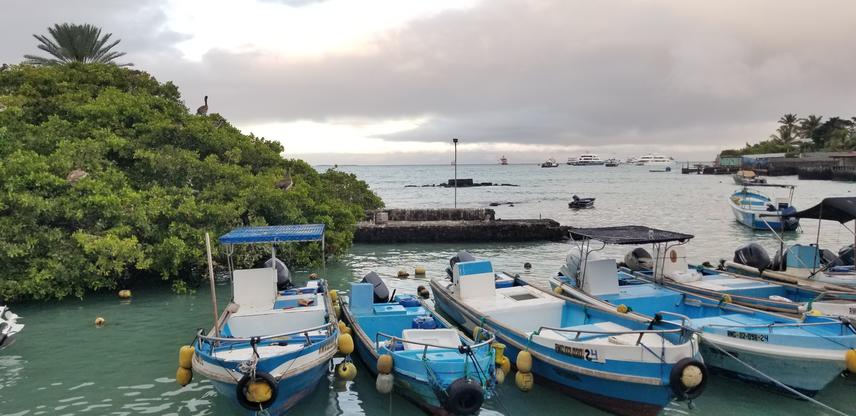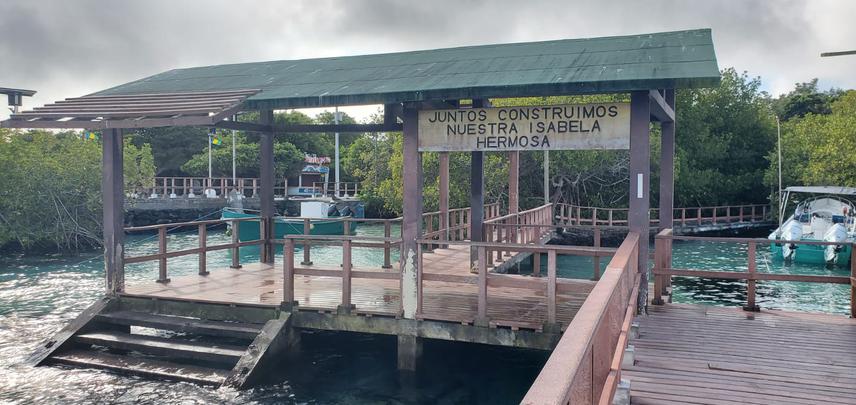Lía Bernarda Altamirano Ponce
Marine ecosystems worldwide are threatened by anthropogenic activity and climate change (Bessesen & González-Suárez, 2021), with approximately 16% of the world's 465 shark species currently facing extinction (Giovos et al., 2019). The marine habitats of the Galapagos Islands host 33 shark species, some of which are listed on the IUCN Red List (Hearn et al., 2014). Despite the Galapagos being renowned for having one of the highest concentrations of sharks globally (De León et al., 2016), further research is essential to understand their ecology and develop effective conservation strategies.

Fishermen's dock in Santa Cruz. ©Lía Altamirano.
Historically, Galapagos' fishers have been portrayed as a threat to shark conservation. However, they play a crucial role in achieving conservation goals within the socio-ecological framework of the archipelago. Changing this narrative involves empowering fishers to contribute actively to and enhance scientific studies. Their insights are invaluable for understanding ecosystems inhabited by various threatened shark species, including their habitats, life stages, behaviors, and historical population fluctuations.

Isabela's dock. ©Mateo Dávila.
In this context, there is a pressing need for research aimed at exploring how local ecological knowledge can offer new insights into shark ecology in the archipelago. This approach emphasizes a bottom-up perspective, facilitating the exchange of knowledge between scientific and local communities (Bessesen & González-Suárez, 2021; Barbato et al., 2021; Giovos et al., 2019).
Header: Extensive mangrove forests can be seen along Isabela's coast. It is the island with the highest mangrove coverage. ©Mateo Dávila.